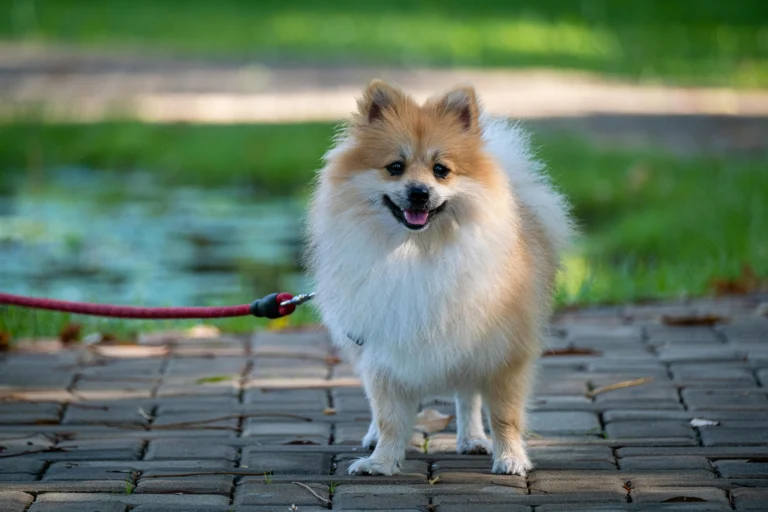In the vast world of dog breeds, few are as beloved and cherished as the Cavalier King Charles Spaniel· Renowned for their affectionate nature and gentle demeanor, Cavaliers have earned a special place in the hearts of many, particularly as companions during challenging times· Their ability to provide emotional support and comfort makes them invaluable in various situations, such as illness, grief, and mental health struggles· In this blog, we will explore how these charming dogs offer solace and companionship to individuals facing hardships, showcasing the profound impact they can have on our lives·
The Gentle Nature of Cavaliers
Cavalier King Charles Spaniels are known for their gentle and loving temperament· These small dogs, with their expressive eyes and soft, silky coats, radiate warmth and affection· Their friendly disposition allows them to connect deeply with people, making them excellent companions for those in need·
Emotional Support During Illness
For individuals battling illness, whether physical or mental, the companionship of a Cavalier can provide a sense of stability and emotional support· Dogs have a unique ability to offer unconditional love, and Cavaliers do this exceptionally well·
1· Reducing Anxiety and Stress
Cavaliers are known to reduce anxiety and stress levels in their owners· Studies have shown that spending time with dogs can lower cortisol levels, the hormone associated with stress, while simultaneously increasing oxytocin, the “love hormone·” For someone undergoing medical treatments or dealing with chronic pain, the calming presence of a Cavalier can make a significant difference·
Imagine a person undergoing chemotherapy· The treatments can be physically draining and emotionally taxing· Having a Cavalier by their side can provide a source of comfort and distraction· The dog’s playful antics and loving nature can help lift spirits, making the challenging process a little more bearable·
2· Encouraging Physical Activity
Cavaliers also encourage their owners to engage in physical activity, which is crucial for recovery and overall well-being· Regular walks and playtime not only benefit the dog but also promote physical movement for their owners· For someone recovering from surgery or managing a health condition, getting outside for a walk with their Cavalier can provide a sense of purpose and motivation·
The routine of caring for a Cavalier can also instill a sense of normalcy in an otherwise challenging time· The responsibility of feeding, grooming, and exercising the dog can help individuals feel more in control of their lives, even when facing health struggles·
Support Through Grief and Loss
Grief can be an overwhelming experience, and the loss of a loved one can leave individuals feeling isolated and heartbroken· In these times of sorrow, Cavalier King Charles Spaniels can provide the comfort and companionship needed to navigate the emotional landscape of loss·
1· A Source of Unconditional Love
The companionship of a Cavalier can be a balm for the grieving heart· Their unconditional love and loyalty create a safe space for individuals to express their feelings without fear of judgment· Many people find solace in simply having the presence of their dog nearby, knowing that their Cavalier is there to offer comfort during moments of sadness·
The act of petting or cuddling a dog has been shown to release endorphins, which can help alleviate feelings of sadness and loneliness· In times of grief, the warmth of a Cavalier’s body and the gentle sound of their breathing can provide a sense of calm and peace·
2· Encouraging Connection and Routine
During periods of grief, individuals often struggle with motivation and may withdraw from social interactions· A Cavalier can encourage their owners to engage with the world again· The need to care for a dog promotes routine and responsibility, which can be essential for mental health during difficult times·
Additionally, Cavaliers are naturally sociable dogs, often attracting attention and interactions from others· Taking a Cavalier for a walk can lead to conversations with neighbors, creating opportunities for social connection that might otherwise be missed· This interaction can help individuals feel less isolated and more connected to their community·
Supporting Mental Health
Cavalier King Charles Spaniels are increasingly recognized for their ability to support mental health· Their gentle and loving nature makes them excellent companions for individuals struggling with anxiety, depression, and other mental health challenges·
1· Reducing Symptoms of Anxiety and Depression
For many people, the presence of a dog can significantly reduce symptoms of anxiety and depression· The routine of caring for a Cavalier encourages individuals to establish a daily structure, which can be beneficial for mental health· Engaging in activities such as walking, feeding, and grooming the dog breeds provides a sense of purpose and can help combat feelings of lethargy·
Cavaliers are also known for their playful and affectionate nature, which can help uplift spirits· The simple act of playing with a Cavalier, whether it’s throwing a ball or engaging in a game of tug-of-war, can bring joy and laughter into one’s life, offering a much-needed respite from negative thoughts·
2· Therapy and Emotional Support
Many individuals seek out therapy dogs to assist in managing mental health conditions· Certified therapy dogs, including Cavaliers, are trained to provide emotional support in various settings, from therapy sessions to hospitals· Their calming presence can help individuals feel more at ease during challenging discussions or treatments·
Cavaliers can also provide companionship for individuals living alone, reducing feelings of loneliness and isolation· The bond that forms between a person and their Cavalier can be incredibly powerful, offering a sense of connection that is vital for emotional well-being·
The Bond Between Cavaliers and Their Owners
The relationship between a Cavalier King Charles Spaniel and their owner is built on trust, love, and companionship· This bond is particularly significant during challenging times, as it fosters a sense of security and comfort·
1· Intuitive Companionship
Cavaliers are known for their intuition· They can often sense when their owners are feeling down or unwell, adjusting their behavior to offer support· Whether it’s curling up next to a person who is feeling sad or providing gentle nudges to encourage play, Cavaliers instinctively know how to provide comfort·
2· Creating Lasting Memories
For individuals facing hardships, the joyful moments shared with a Cavalier can create lasting memories that help counterbalance the difficulties they may encounter· Whether it’s a playful romp in the yard or a quiet cuddle on the couch, these moments of connection can have a profound impact on emotional well-being·
Bridging Connections in Therapy Settings: The Role of dog breeds
The Therapeutic Benefits of Therapy Dogs
Therapy dogs, including Cavaliers, are trained to provide comfort and support to individuals in various healthcare and therapeutic settings· Their presence has been shown to reduce anxiety, alleviate stress, and promote emotional well-being· The benefits of therapy dogs extend beyond mere companionship; they actively participate in the healing process by fostering connections and encouraging positive interactions·
1· Reducing Anxiety and Stress
The presence of a Cavalier King Charles Spaniel can have a calming effect on patients· Studies have shown that interacting with dog breeds can lower cortisol levels (the stress hormone) and increase oxytocin levels, which fosters feelings of love and connection· For patients undergoing medical treatments or facing emotional challenges, the gentle demeanor of a Cavalier can create a soothing environment that encourages relaxation·
In settings such as hospitals, where patients may feel anxious or vulnerable, the mere sight of a Cavalier can bring a sense of comfort· Their friendly wagging tails and soft, inviting eyes create an atmosphere of warmth, allowing patients to feel more at ease during their treatment·
2· Enhancing Communication
Cavaliers are naturally sociable dog breeds, and their presence can facilitate communication between patients, families, and healthcare providers· In therapy settings, patients may find it easier to express their thoughts and emotions when a dog is present· The bond formed with a Cavalier can encourage open conversations, helping individuals feel more comfortable discussing their feelings and experiences·
For example, in pediatric hospitals, children often find it challenging to articulate their fears or concerns about medical procedures· The playful nature of a Cavalier can help break the ice, encouraging children to engage with healthcare professionals in a more relaxed manner· This connection can lead to improved communication and a better understanding of the child’s needs·

The Role of Cavaliers in Various Therapy Settings
1· Hospitals and Rehabilitation Centers
In hospitals and rehabilitation centers, Cavaliers have become integral members of the healthcare team· Their ability to provide emotional support and companionship has made a significant impact on patient recovery· Many patients undergoing surgery or treatment for chronic conditions often experience feelings of loneliness, anxiety, and depression· The presence of a Cavalier can help alleviate these feelings, offering a source of comfort during challenging times·
Cavaliers participate in structured therapy sessions, where they engage with patients through activities such as petting, grooming, and playing· These interactions can help boost patients’ spirits, promote physical activity, and even encourage them to participate in their rehabilitation programs· The unconditional love of a Cavalier can motivate patients to engage more fully in their recovery journey·
2· Mental Health Facilities
In mental health facilities, the presence of a Cavalier can foster emotional healing and connection· Therapy dog breeds play a crucial role in providing companionship and support for individuals dealing with anxiety, depression, PTSD, and other mental health challenges· The gentle nature of Cavaliers allows them to connect with patients on a personal level, creating a safe environment for emotional expression·
Cavaliers are often involved in group therapy sessions, where patients can share their feelings while interacting with the dog breeds· This approach not only helps individuals build trust and rapport with one another but also encourages them to open up about their experiences· The comforting presence of a Cavalier can help reduce feelings of isolation, making it easier for patients to connect with others in their healing journey·
3· Schools and Educational Settings
Cavaliers are increasingly being utilized in educational settings to support students’ emotional well-being· In schools, therapy dogs can help create a positive and nurturing environment that promotes learning and social interaction· Cavaliers can assist children in overcoming social anxiety, improving focus, and fostering empathy·
When Cavaliers visit schools, they often participate in reading programs where children read aloud to the dog breeds· This non-judgmental audience helps children feel more confident in their reading abilities, making the experience enjoyable and stress-free· The bond formed between the child and the Cavalier can enhance the child’s self-esteem and encourage a love for reading·
The Impact on Families
The impact of Cavalier King Charles Spaniels in therapy settings extends beyond individual patients; they also play a vital role in strengthening connections among families· When a Cavalier is present, families can experience emotional healing together, fostering a sense of unity during difficult times·
1· Creating Shared Experiences
The interactions with a Cavalier create shared experiences that can help families bond and connect· Whether it’s during a therapy session at a hospital or participating in family activities centered around the dog breeds, the shared joy of interacting with a Cavalier can promote positive family dynamics·
Families facing challenges often experience stress and tension, and the presence of a Cavalier can help alleviate that· Engaging with the dog breeds can create moments of laughter and joy, allowing family members to take a break from their worries and enjoy quality time together·
2· Strengthening Family Communication
Cavaliers can also facilitate communication among family members· When families gather to participate in activities with a therapy dog, they often find it easier to discuss their feelings and experiences· The bond formed with a Cavalier can serve as a bridge, encouraging family members to open up and share their thoughts in a supportive environment·
For families navigating the challenges of illness or mental health issues, having a Cavalier present can foster a sense of togetherness· The shared experience of caring for the dog breeds can promote teamwork and collaboration, enhancing family communication and understanding·
Inspiring Young Hearts: The Transformative Effects of Cavalier King Charles Spaniels on Children
The Affectionate Nature of Cavaliers
One of the most endearing qualities of Cavalier King Charles Spaniels is their affectionate nature· These dogs are known for their loving personalities, which make them ideal companions for children· Cavaliers thrive on human interaction and are eager to shower their families with love and attention· This affectionate demeanor creates a safe and nurturing environment for children, allowing them to form deep emotional bonds with their dog breeds·
Cavaliers are incredibly intuitive, often sensing the feelings of those around them· When a child is feeling down or anxious, a Cavalier’s gentle presence can provide comfort and reassurance· Their ability to offer unconditional love fosters a sense of security that can be transformative for children facing various challenges, whether they are dealing with social anxiety, learning difficulties, or personal loss·
Encouraging Social Interaction
Cavalier King Charles Spaniels are inherently social dog breeds, and their friendly nature encourages children to engage with others· Interacting with a Cavalier can serve as a bridge for children to connect with their peers, promoting social interaction in various settings·
1· Facilitating Friendships
Cavaliers have a knack for attracting attention, making them excellent icebreakers in social situations· When children take their Cavaliers to parks, schools, or community events, they often find themselves surrounded by other children eager to meet their dog breeds· This natural socialization fosters friendships and helps children develop important social skills·
For shy or introverted children, a Cavalier can provide the confidence needed to approach others and initiate conversations· The shared interest in the dog creates an opportunity for children to bond over a mutual love for animals, leading to meaningful connections and friendships that might not have occurred otherwise·
2· Group Activities and Playdates
Cavaliers also encourage group activities and playdates· Families with children often organize gatherings where their Cavaliers can play together, creating an environment for children to socialize and interact· These playdates provide a platform for children to learn teamwork, cooperation, and empathy as they care for and engage with their dog breeds and each other·
In educational settings, therapy dogs like Cavaliers are increasingly being utilized to support social interaction among students· Programs that involve reading to therapy dogs have gained popularity, as children feel less pressure reading aloud to a dog than to their peers or teachers· This practice not only improves reading skills but also promotes confidence and social engagement·
Boosting Confidence and Self-Esteem
The presence of a Cavalier King Charles Spaniel can significantly boost a child’s confidence and self-esteem· These dog breeds provide unwavering support and encouragement, helping children feel valued and loved·
1· Responsibility and Care
Caring for a Cavalier instills a sense of responsibility in children· They learn to feed, groom, and exercise their dog, which fosters a sense of accomplishment and pride· This responsibility can be particularly beneficial for children who may struggle with self-esteem issues· As they care for their Cavalier, they develop a sense of purpose and learn that their actions have a positive impact on another living being·
2· Positive Reinforcement
Cavaliers respond exceptionally well to positive reinforcement, and this can be a valuable lesson for children· When children interact with their Cavalier through training or play, they learn the importance of patience, persistence, and positive reinforcement· Successfully teaching their dog breeds a new trick or command can lead to feelings of achievement and boost their self-confidence·
3· Emotional Support
For children experiencing difficult emotions, the comforting presence of a Cavalier can be incredibly uplifting· Knowing that their dog breeds is there to provide companionship can help alleviate feelings of loneliness or sadness· This emotional support fosters resilience and encourages children to express their feelings in a healthy way· The bond formed between a child and their Cavalier can create a positive outlet for emotions, promoting emotional well-being·

Fostering Empathy and Compassion
Interacting with a Cavalier King Charles Spaniel also helps children develop empathy and compassion· These qualities are essential for forming healthy relationships and navigating social situations·
1· Understanding Needs and Emotions
Cavaliers are expressive dogs, and their ability to communicate their needs and emotions can teach children to be more attuned to the feelings of others· When children learn to recognize when their Cavalier is hungry, tired, or in need of affection, they develop a deeper understanding of empathy· This awareness extends beyond their interactions with dog breeds, helping them become more compassionate individuals in their relationships with family and friends·
2· Learning the Value of Kindness
Caring for a Cavalier instills the importance of kindness and compassion· Children learn to approach their dog with gentleness, patience, and love, which translates into their interactions with others· The bond formed with a Cavalier encourages children to practice kindness, fostering a positive attitude that can impact their relationships and social interactions·
Promoting Physical Activity
Cavalier King Charles Spaniels are active dog breeds that require regular exercise, which promotes physical activity for children· Engaging in outdoor activities with a Cavalier encourages kids to be more active and healthy·
1· Outdoor Adventures
Taking a Cavalier for walks, playing fetch in the backyard, or going on hikes are excellent ways for children to stay active· These activities not only promote physical health but also provide opportunities for families to bond and create lasting memories together·
2· Encouraging Healthy Habits
By involving children in the care and exercise of their Cavalier, parents can instill healthy habits early on· Regular physical activity is essential for overall well-being, and having a dog breeds can make exercise more enjoyable· As children engage in physical activities with their Cavalier, they learn the importance of staying active and healthy for their own well-being·
Conclusion
Cavalier King Charles Spaniels have a transformative effect on children, inspiring young hearts and creating lasting positive changes in their lives· From encouraging social interaction and boosting confidence to fostering empathy and promoting physical activity, Cavaliers play a vital role in the emotional and social development of children·
These loving dog breeds provide companionship, support, and joy, helping children navigate the complexities of growing up· The bond formed between a child and their Cavalier is a unique and powerful relationship that can shape their character and emotional well-being for years to come·
As we celebrate the remarkable impact of Cavaliers on young lives, it’s clear that these gentle dog breeds are more than just pets; they are cherished companions that inspire, uplift, and transform the hearts of children, leaving a lasting legacy of love and connection·







